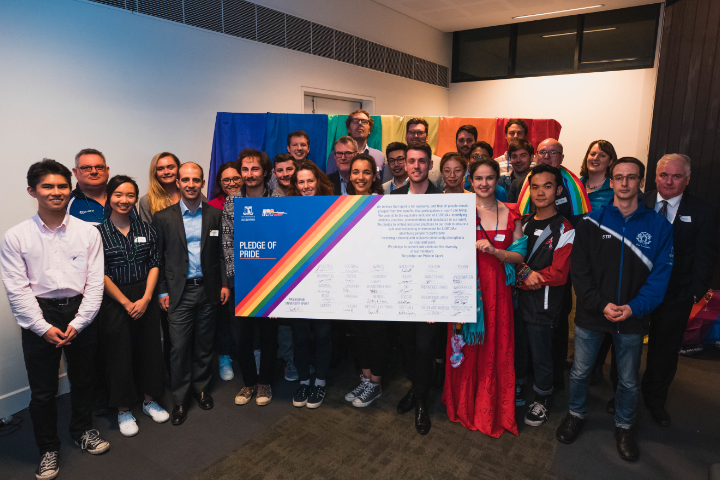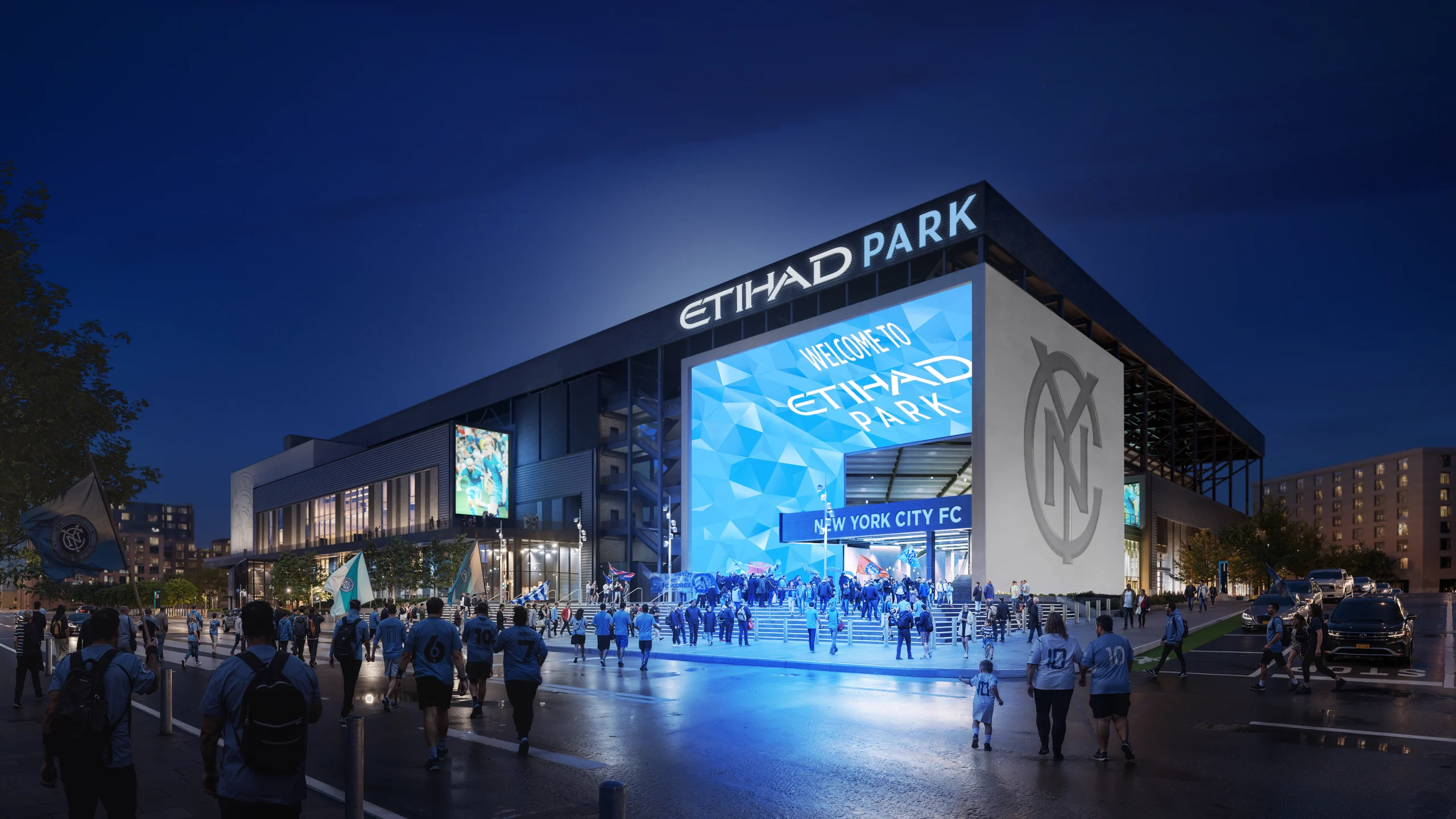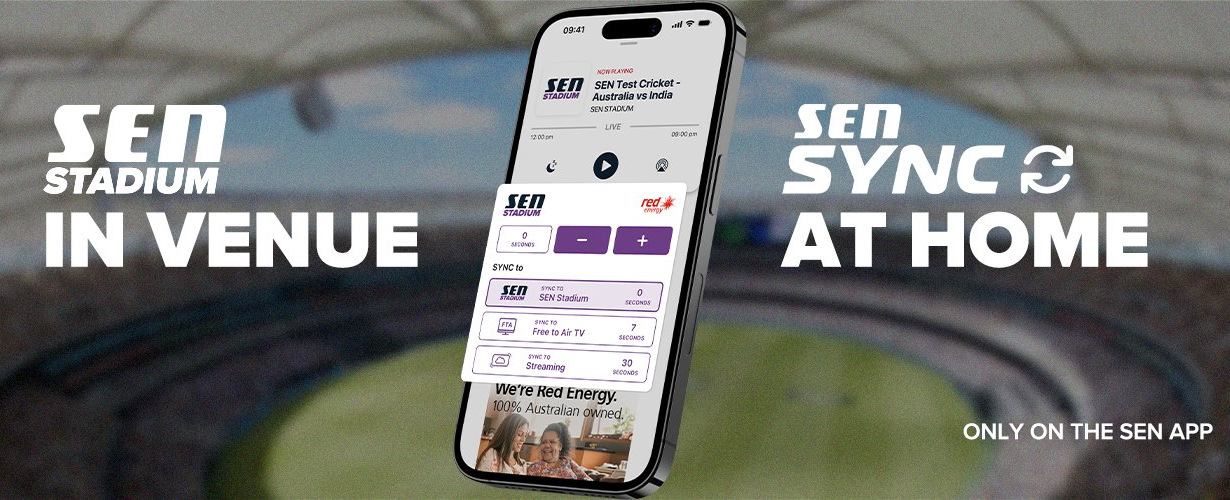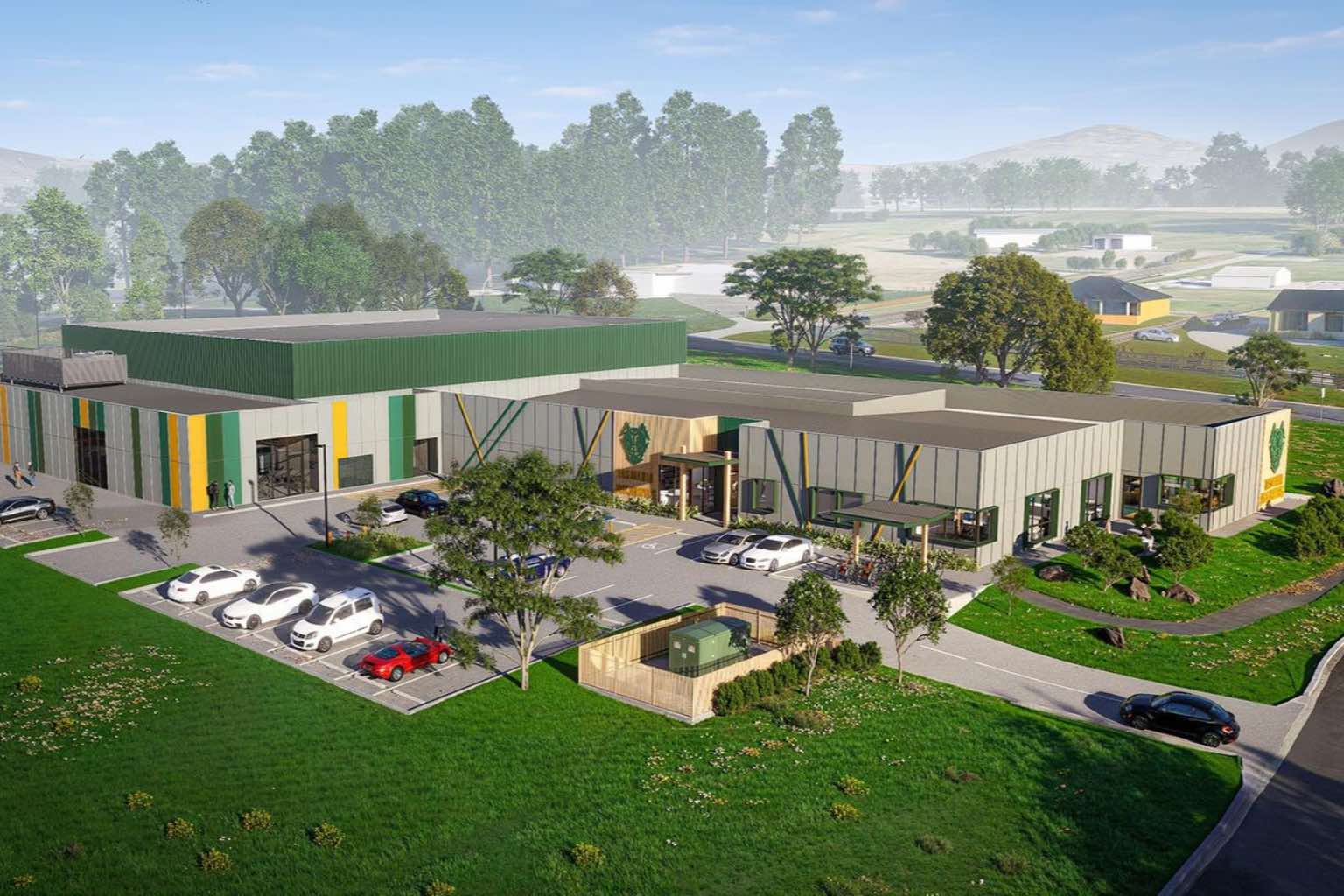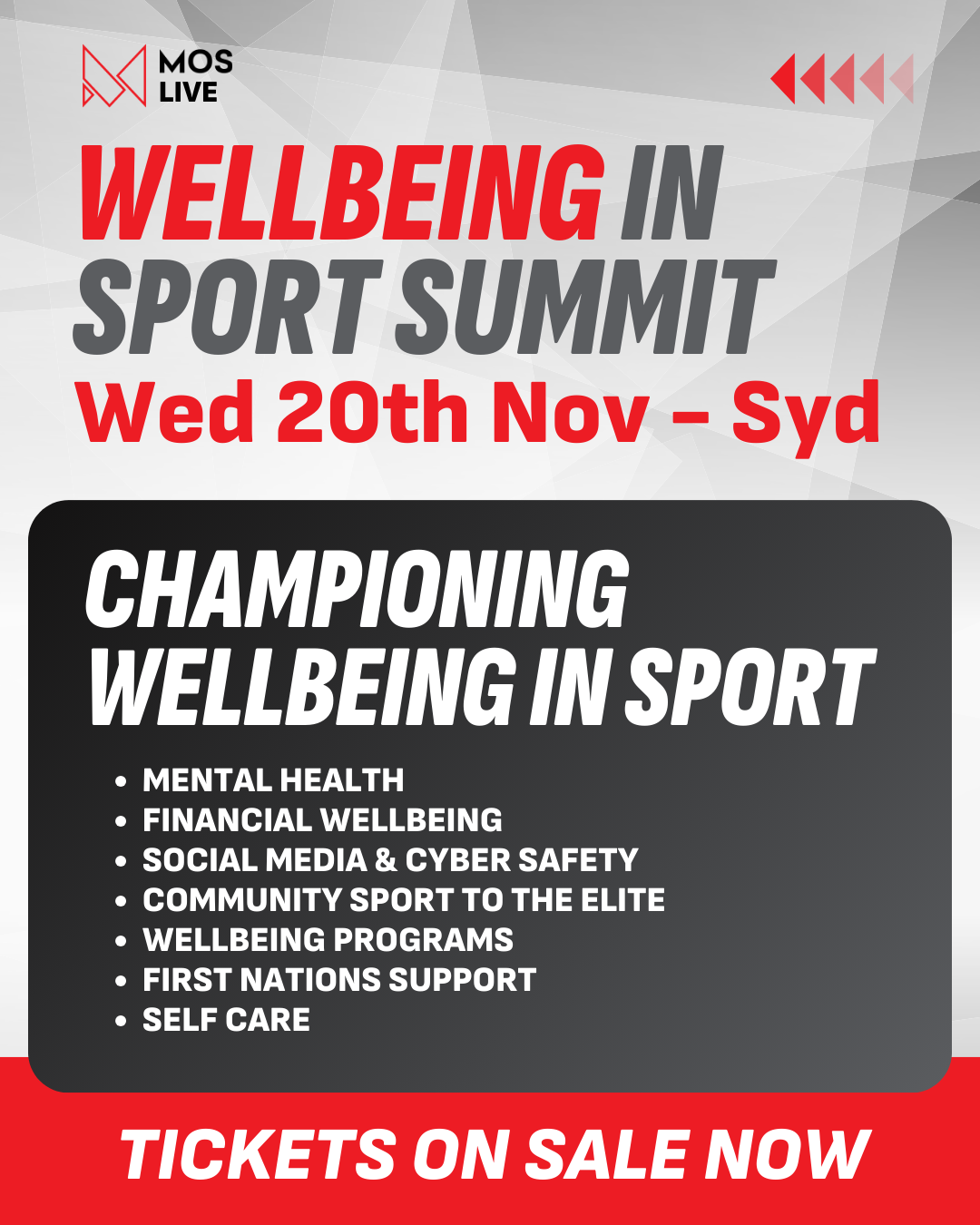[mkdf_dropcaps type=”normal” color=”#f55549″ background_color=””]M[/mkdf_dropcaps]
elbourne University Sport (MU Sport) was been awarded the highest honour LGBTQIA+ initiatives at the 2020 Australian Pride in Sport Awards.
Aids Council of New South Wales’s (ACON) Pride in Sport Index (PSI) is an initiative of the Australian Human Rights Commission and the Australian Sports Commission, whose results the award is based on.
MU Sport director, Tim Lee, told Ministry Of Sport in an exclusive interview that the award was “the professional highlight of a 30-year sports management career”
“To me, inclusion is ensuring that people feel welcome and are welcome both in terms of the way you construct your program through to the messages you provide and the symbolism of the rainbow colours on things, so it’s both covert and overt.”
“If there are things that our rival clubs do inadvertently or intentionally that exclude people from that or don’t make them feel welcome then we fail in our duty to do that”
“Inclusion is a journey to make sure everyone feels welcome at whatever level.”
“I don’t think inclusion is important to everyone, and that’s the problem, what we do as a university is lead the way around inclusion being something we are passionate and committed to.”
“Part of what we do is ensuring is that not only are our staff and students engaging regularly but that as future leaders and university graduates that they’re out there demonstrating what is and isn’t appropriate.”
“We still have a long way to go with inclusion, we still have yet to have a gay man play AFL publicly.”
“I think we’re getting better but we still have a long way to go even winning this award is really about recognising the ways in which we still have a long way to go ourselves, we’ve just taken a few steps on that journey”
“Universities have a really important role in terms of educating their graduates in terms of their expectation about what happens in sport, recreation and fitness in that context.”
MU Sport received a gold tier PSI result, compared to last year’s silver, which they shared with Tennis Australia.
“Our University blacks football club started us thinking around policies more generally when they sought our support for their Gay That’s Okay initiative, which was a precursor to a lot of the AFL pride rounds.”
“Many of our clubs have done a great job at being very inclusive beforehand, but this really got us thinking around how we approach policies and procedures.”
MU’s LGBTQIA+ Inclusion Policy and Companion Guide, saw 30 sporting clubs sign a pledge of respect and diversity.
“We were very fortunate to get funding from the university to start our own internal pride in sports program which included everything from engaging with the LGBTQI community directly with a targeted program internally, to working with our clubs around establishing policy and procedure to ensure that their clubs were welcoming.”
“We’ve done a lot of branding around this to make sure students and staff are comfortable coming into our facilities and we worked with our clubs to sign a pledge at event last year which was a public demonstration of commitment to inclusion in our clubs.”
“We’ve been active in ensuring that we have a pride ambassador in each club whose someone from the LGBTQI community or an ally who challenges the club practices. Quite often we may think we’re doing a get job and we may not be.”
“It’s about making sure that’s on their radar and thinking about how we do provide an inclusive environment through everything from their recruitment promotions through to selection policies through to gender balances around providing elite through to participation opportunities.”
“The targeted programs have been well received in that students have participated in those programs in strong numbers, we’ve had some really good responses and support from our clubs.”
“We’ve been approached by a lot of individuals who are transitioning and would come to us to want to work through an issue with us, I suspect these issues would never have come to light had we not done this.”
The MU Water Polo Club was also nominated for the LGBTQIA+ Community Sport Award.
“I think the sporting industry is still really struggling with the issue of transgender athletes, I would suggest that whilst they’ve introduced policies, some of those policies are actually about excluding transgender athletes.”
“There’s still a lot of work that needs to be done to figure out where transgender athletes fit in some sports.”
“I think in most cases the sports are trying to deal with it in their own way, they’re still grappling with a community that’s still struggling with it and I think homophobia is still a real issue”
“It’s fantastic to see the WBBL profiling a lot of the relationships that their players have with each other and the AFL does the same thing.”
“The premise of the Gay That’s Okay initiative was a young man who was really struggling with his sexuality while he was at the club and many years after that, and hadn’t even come out to his twin brother.”
“He realised that his club and his community and his family were a lot more supportive than he had imagined and felt more comfortable to be himself.”
“Australians love their sport and if sporting organisations re-embracing that leadership role they can be really influential and I think many of them are doing that really well.”
“We will continue to have conversations and learn from the people who are living this experience, the more I know the more I realise I don’t know.”
“I’ve seen the lack of inclusion from family members who are very close to me.”
“We hope that someday we won’t need to hand out Pride In Sport awards because it won’t be an issue anymore, but we love that we’ve got it, we’re very proud of it and of all our clubs and staff.”
MU Sport was also awarded the Most Improved Sporting Organisation Award.



